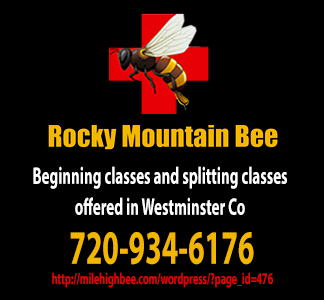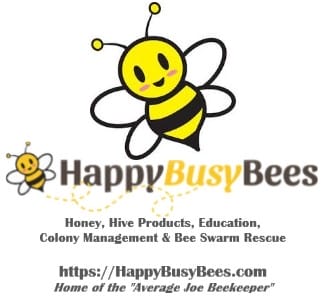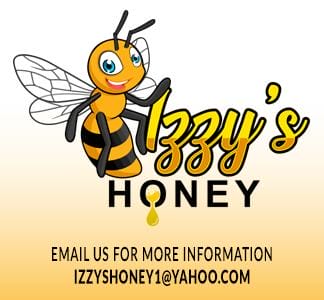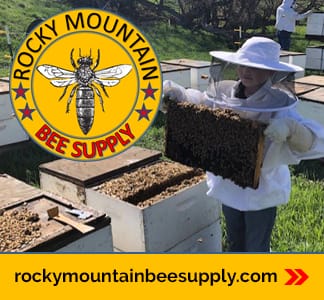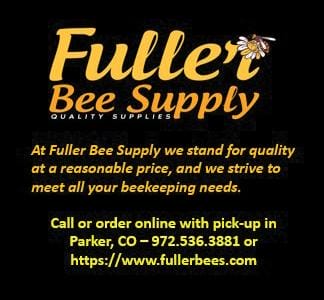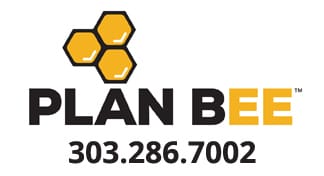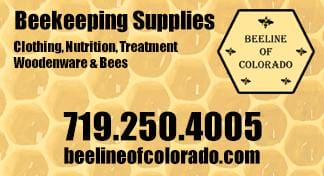CSBA Standing Committees
The CSBA formally formed 5 committees at the Winter Meeting in 2012: 1.) Best Practices, 2.) Data Collection, 3.) Forage, 4.) Master Beekeeper and 5.) Pesticides. The November 2014 Winter Meeting modified these committees to delete Pesticides and include 6.) Agritourism. CSBA now has a member on the Colorado State Pesticide Advisory Board/Committee so this Committee is active again. You do not need to be a CSBA member to contribute to these committees. These committees are chaired by volunteers and have the following overarching goals:
AgriTourism
Agritourism is a booming industry. As the name indicates, it combines an agricultural experience with tourism interest. People like to know how their food is produced. The Colorado Department of Agriculture has a marvelous website containing a wealth of information on agritourism. In 2014, the Colorado State Legislature passed a HB14-1280 which limits liability for those engaged in agritourism activities. This is important to us beekeepers! The CSBA would like its members to capitalize on this trend. Greg Townsend is the voluntary chair of this committee. He can be reached at: [email protected].
Best Practices
This committee would be responsible for drafting a set of “Best Practices” for beekeepers of different hive types in different settings. The committee would scan the internet for best practices documents to use as models for the crafting of a CO Best Practices. The committee will compile and expand that data as necessary to create a CO Best Practices series of reference documents for new and existing beekeepers as well as for the general public. Best practices would be another helpful tool in the effort to remove all bee bans. This committee will communicate by email only and estimated time needed for adequate participation is approximately 2 hours monthly. Phil Bradbury of BCBA is the voluntary chair of this committee. He can be reached at [email protected].
Data Collection
There is very little in the way of data being collected on the small and mid-sized beekeepers. For example, there is no data on package success nor is there any comprehensive data on overwintering losses. The immediate goal of this committee is to increase the input into the annual Bee Informed Partnership survey to 300 beekeepers. If we are able to get 300 folks to respond, then the Bee Informed Partnership will break out our statistics to the State level. We want to see CO data so, please, participate! Nick French of High Land Beekeeping Club is the voluntary chair of this committee. He can be reached at [email protected]. This committee will be responsible for embarking on a long-term data collection strategy which will aid us in the procurement of funds for further studies and, hopefully, begin or strengthen partnerships with Colorado colleges. In addition, it will provide us with a sound basis for evaluating packages, nucs, and queen stock from breeders and package providers. This committee will also be an email committee with estimated time to be 4-5 hours monthly during the off-season and none during bee season. Initial design of the questionnaires as well as determining collection methodology and interpretation of results will be fairly time-consuming this first year. Subsequent years efforts will be focused on administration and results. It would be cool to see data from 2014 at the Summer or Winter meeting of 2015.
Forage
For those of you who are reading any of the bee magazines, you know that forage is a “hot topic” right now. The long-term solution to honey production and bee health is not sugar feeding. It is increased forage. This is an absolutely universal issue–if you keep bees, this situation affects you! My vision for this committee is to begin the process of developing a long-term strategy for forage management in CO. There are numerous federal and state program opportunities to capitalize upon. We just need to figure out what they are and how to access them. In addition, there are lots of organizations that have information on forage plantings for urban, suburban and agricultural areas that need to be reviewed and compiled and centrally located (on the CSBA site) so that folks can easily use the information. I see this as an email committee with a possible face-to-face meeting or two. Thus, I see this as a 4 hour monthly commitment monthly during the off-season. The voluntary chairs of this committee are Tim Brod and Tom Nangle of BCBA. Tim can be reached at [email protected] and Tom at [email protected].
Master Beekeeper
The CSBA has made great progress in getting a formal Master Beekeeper program off the ground. Carolina launched the first Apprentice level class in fall of 2014 with plans for a Journeyman class soon. In addition, the committee is working with various other organizations to synchronize beginning class offerings across the state. Volunteers are needed!. There are currently several Master Beekeeping programs offered in the country–but none particularly near Colorado. Time to close the gap! Dr. Carolina Nyarady of NCBA is the voluntary chair of this committee. Carolina can be reached at [email protected].
Pesticides (Re-activated)
This committee will be responsible for ensuring that the State fairly represents its membership with respect to pesticide issues. The committee will select a representative to sit on the Colorado Pollinator Workgroup who will act as the spokesperson for the CSBA. This committee will be responsible for updating the insecticide section of the CSBA website with current and pertinent data. There is a lot of information currently on the site–but it needs to be updated. I can envision this committee actually acting as the primary liaison between the membership and the Colorado Department of Agriculture (CDA) with respect to member pesticide issues. The committee may also be the medium by which new in-hive miticides/pesticides are presented to the CDA for approval for use in CO. In short, this is a pretty broad issue and whomever signs on as Chair of this committee will need to determine priorities and direction. Furthermore, representation will need to be defined so that all beekeeping interests are fairly represented: i.e.: commercial/hobbyist/sideliner or urban/suburban/agriculture. This will require a time commitment of 2 hours per month except for the chairperson and the individual who sits on the CPW. That individual will need to make 2 trips to Denver annually for the CPW meetings. The CSBA will compensate for travel. There is currently no committee chair.
As you can see, there’s a lot to do and the CSBA can use additional help. Look at these committee volunteer opportunities and consider making a commitment for the betterment of beekeeping in Colorado. Member time requirements are nominal–but integral. Please contact the appropriate committee chair if you can help.
CSBA Administrative Committees
In addition to the Standing Committees, CSBA has (or envisions) Administrative Committees to assist with the operations of CSBA.
Operational (or envisioned) Committees include:
- 4H Support
- Newsletter (High-Country Bee)
- Club/Membership Data
- Audio/Visual
- Technology
- Swarm Rescue
- Education
- Outreach
- Club Liaison
- Communications
- Marketing
- Others TBD


